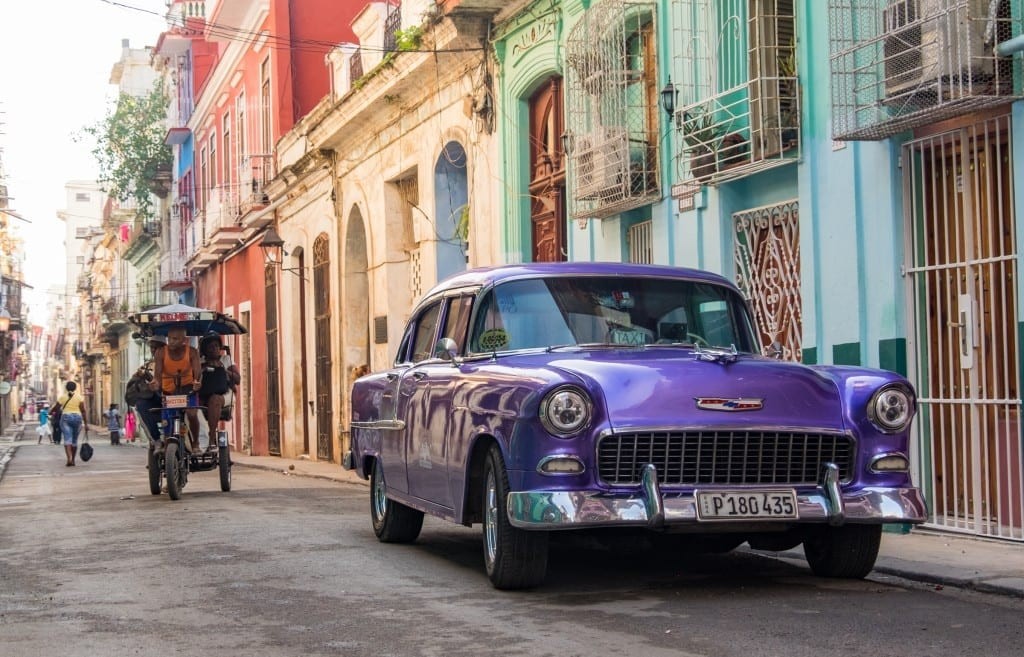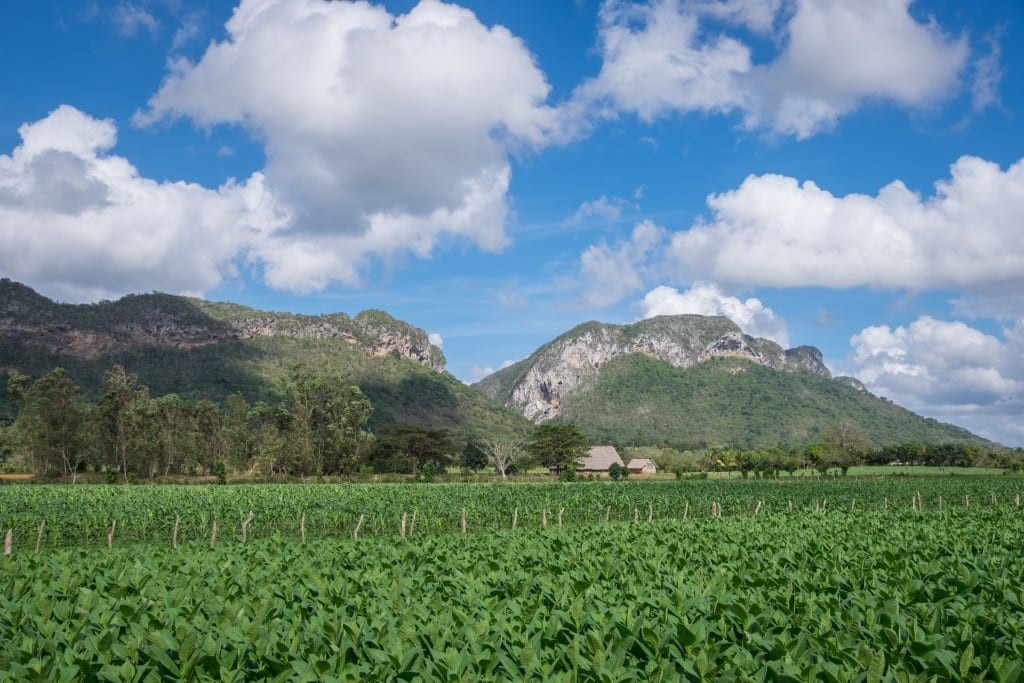Are you dreaming of vintage cars and vibrant culture? How To Travel To Cuba From Usa is a common question. SIXT.VN offers valuable insights and services to help you plan your trip. Discover the legal ways to visit, navigate currency restrictions, and find the best accommodations for an unforgettable Cuban adventure. Let SIXT.VN be your guide to the best travel experience and comprehensive travel guide, providing smooth airport transfers, hand-picked hotels, and unforgettable city tours.
1. Can Americans Travel to Cuba?
Yes, Americans can travel to Cuba, but it’s essential to understand the regulations and requirements. There are legal ways for US citizens to visit Cuba, mainly through specific authorized travel categories. Understanding these categories and how to comply with them is the first step in planning your trip.
1.1 Legal Avenues for US Citizens
Americans can travel to Cuba legally through 12 authorized categories of travel, as defined by the U.S. Department of Treasury’s Office of Foreign Assets Control (OFAC). These categories include:
- Family visits
- Official U.S. government business
- Journalistic activity
- Professional research and meetings
- Educational activities
- Religious activities
- Public performances, clinics, workshops, athletic and other competitions, and exhibitions
- Support for the Cuban people
- Humanitarian projects
- Activities of private foundations or research or educational institutes
- Exportation, importation, or transmission of information or informational materials
- Certain export transactions
According to the U.S. Department of the Treasury, these categories are designed to allow travel that supports specific activities or provides assistance to the Cuban people, ensuring that the travel does not primarily benefit the Cuban government.
1.2 The “Support for the Cuban People” Category
For many tourists, the easiest way to visit Cuba legally is under the “Support for the Cuban People” category. This requires you to engage in activities that directly benefit the Cuban people, such as:
- Staying in casas particulares (private homestays)
- Eating at privately-owned restaurants (paladares)
- Shopping at local artisan markets
- Participating in cultural activities with local communities
- Using privately-owned transportation services
[According to research from the Cuba Travel Network, in 2023, travelers who chose “Support for the Cuban People” contributed significantly to local economies, with an average expenditure of $1,500 per person on local services and goods.]
1.3 How to Ensure Compliance
To comply with the “Support for the Cuban People” category, it’s crucial to keep detailed records of your activities and expenses. This includes receipts from casas particulares, restaurants, and other private businesses. It’s also advisable to create a detailed itinerary that outlines how your activities support the Cuban people.
1.4 Direct Flights from the USA to Cuba
Yes, there are direct flights to Cuba from the United States, making travel more convenient. You can find flights to Havana from cities like Miami, New York, Fort Lauderdale, and Atlanta. When booking, ensure you have the necessary visa or meet the requirements for authorized travel. Airlines typically provide the “pink tourist card” required for those flying directly from the US.
2. What are the COVID-19 Entry Requirements for Cuba in 2024?
As of 2024, Cuba has lifted all COVID-19-related entry requirements. Travelers no longer need to present a negative test or proof of vaccination. However, it is always wise to stay updated on any potential changes by checking official sources.
2.1 Current Requirements
As of April 2024, there are no COVID-19-related entry requirements for entering Cuba. You do not need to:
- Provide a negative COVID-19 test
- Show proof of vaccination
- Quarantine upon arrival
2.2 Recommended Precautions
While not mandatory, it is a good idea to bring face masks and hand sanitizer, as these items may be in short supply in Cuba. Staying informed and prepared can help ensure a smooth and safe trip.
2.3 Where to Find Official Information
For the most up-to-date information, refer to the US Embassy in Cuba and the Cuban Ministry of Public Health. These sources provide accurate and timely details on any health-related travel advisories.
3. How to Get a Cuban Visa as an American Citizen
To visit Cuba legally as an American, you need a Cuban visa, also known as a “general license.” This is essentially permission from the Cuban government to enter the country. Here’s how to obtain one.
3.1 Understanding the General License
The Cuban government requires a general license for Americans to travel to Cuba. This license falls under one of the 12 categories defined by the Office of Foreign Assets Control (OFAC). Ensure you meet the criteria for your chosen category.
3.2 Applying for a Visa
For those flying from the United States, the “pink tourist card” can be obtained at the airport before departure. If you are flying from another country, such as Mexico or Canada, you will need the “green tourist card,” which can also be purchased at the airport.
3.3 Using Travel Agencies for Visa Assistance
Companies like ViaHero specialize in helping Americans plan legal trips to Cuba, ensuring compliance with all regulations. They can create custom itineraries that meet the requirements of the “Support for the Cuban People” category.
3.4 Other Ways to Get Visa
- Cuban Embassy: Apply directly through the Cuban embassy in Washington, D.C.
- Online Services: Use online services such as Cuba Visa Services to expedite the process.
4. Traveling to Cuba Without a Visa: The Gray Area
An alternative, though somewhat legally ambiguous, way to visit Cuba is to fly through another country such as Mexico or Canada. Here’s how this works.
4.1 Booking Flights Through Other Countries
You can book a flight to a third country like Mexico or Canada and then book a separate flight from there to Cuba. Cancun and Mexico City are popular departure points due to their proximity and frequent flights to Havana.
4.2 Obtaining a Cuban Tourist Card
When traveling this route, you’ll need a Cuban tourist card (the “green tourist card”), which can be purchased at the airport in the country you are departing from. This card is usually available at the airline’s ticket office.
4.3 Considerations for American Travelers
Cuban immigration authorities typically do not ask about U.S. visas or travel permissions. However, it is essential to be aware of U.S. regulations and potential scrutiny upon your return to the United States. Compliance with U.S. travel restrictions is ultimately the traveler’s responsibility.
 Classic cars lining the streets of Havana
Classic cars lining the streets of Havana
5. What Else Do Americans Need to Know Before Visiting Cuba?
Before you travel to Cuba, there are several essential considerations for American citizens. These include travel insurance, financial restrictions, and prohibited establishments.
5.1 Travel Insurance
Travel insurance is mandatory for visitors to Cuba. Ensure your policy covers medical emergencies and potential trip disruptions. Print out proof of your insurance to present if requested.
5.2 Financial Restrictions
U.S. regulations prohibit Americans from using credit cards or ATMs in Cuba. You must bring enough cash for your entire trip.
5.3 Restricted Establishments
Americans are prohibited from spending money at certain government-owned establishments. The U.S. State Department maintains a list of restricted entities that you should avoid.
5.4 Keeping Receipts
Keep all receipts from your trip for up to five years, as the U.S. government may request them to verify compliance with travel regulations.
6. Managing Money in Cuba as an American Tourist
One of the most challenging aspects of traveling to Cuba as an American is managing your finances. Due to U.S. sanctions, you cannot use credit cards or access ATMs. Here’s how to handle your money.
6.1 Bringing Cash
Americans must bring all the cash they need for their entire stay. U.S. dollars and Euros are widely accepted and can be exchanged for Cuban currency.
6.2 Exchanging Currency
You can exchange money at banks or your accommodation. Banks often have long lines, so exchanging at your casa particular may be more convenient.
6.3 Cuban Currencies
Cuba has two currencies: the Cuban Convertible Peso (CUC) and the Cuban National Peso (CUP). Tourists typically use CUC, which is pegged to the U.S. dollar. CUP is mainly used by locals.
6.4 Safety Tips for Carrying Cash
- Use a Speakeasy Travel Supply scarf with a hidden pocket to keep your cash safe.
- Bring a portable safe to store valuables in your accommodation.
- Hide cash in various places in your luggage.
7. Where to Stay in Cuba: Hotels vs. Casas Particulares
Choosing the right accommodation can significantly enhance your Cuban experience. While hotels are available, staying in casas particulares offers a more authentic and economically beneficial option.
7.1 Casas Particulares: A Local Experience
Casas particulares are private homes or apartments rented out to visitors. They are typically cheaper than hotels, often around $25-$50 per night, and offer a more immersive cultural experience.
7.2 Benefits of Staying in Casas Particulares
- Economic Impact: Staying in casas directly supports Cuban families.
- Local Connections: Hosts can provide valuable insights and assistance, such as arranging transportation and tours.
- Authentic Experience: Experience Cuban daily life and hospitality.
7.3 Finding Casas Particulares
You can find casas particulares through Airbnb. Look for accommodations in Havana or Viñales for a comfortable and authentic stay.
7.4 Hotels: Comfort and Convenience
Hotels in Cuba offer a more traditional experience with amenities like restaurants and pools. However, they tend to be more expensive and less connected to local communities.
8. Exploring Havana: What to Expect
Havana is a city full of vibrant culture, historic architecture, and unique experiences. Understanding what to expect can help you make the most of your visit.
8.1 Iconic Classic Cars
Havana is famous for its vintage cars. Take a ride in a classic car to experience the city in style.
8.2 Diverse Cuban Population
Cuba has a diverse population with influences from Africa, Europe, and Asia. This diversity is reflected in the culture, music, and cuisine.
8.3 The Cuban Accent
The Cuban accent is distinct and can be challenging for Spanish speakers. The letter “s” is often dropped, so más becomes ma.
8.4 Love for Havana Club Rum
Havana Club rum is a staple in Cuba. Enjoy it in classic cocktails like the Havana Special, made with rum, maraschino, and pineapple juice.
8.5 Limited Variety of Groceries
Grocery stores in Cuba often have limited selections. Expect to see rows of identical items rather than a variety of brands. American brands are notably absent.
9. Connecting with Cuban Culture: Conversations and Experiences
To truly understand Cuba, engage with the local culture through conversations and experiences. Participate in activities that offer insight into Cuban life.
9.1 Taking a Cooking Class
Sign up for a cooking class to learn about Cuban cuisine and culture. A seafood cooking class can provide hands-on experience and a deeper understanding of local ingredients.
9.2 Learning About “El Paquete Semanal”
“El Paquete Semanal” is a unique Cuban phenomenon: a terabyte of data containing TV shows, movies, and apps distributed offline. It’s an innovative way Cubans connect with the world without widespread internet access.
9.3 Asking About US-Cuban Relations
Engage in respectful conversations with Cubans about their views on the United States. You may find that while there are criticisms of U.S. policies, there is also a fondness for Americans.
10. Economic Opportunities and Airbnb in Cuba
Airbnb provides significant economic opportunities for Cubans, allowing them to earn income by renting out their homes and offering unique experiences.
10.1 The Impact of Tourism
Tourism is crucial for the Cuban economy, especially when you support local businesses and individuals directly. Buying from locals can significantly improve their quality of life.
10.2 Airbnb as an Income Source
Airbnb allows Cubans to earn much-needed income. Renting out rooms or offering experiences can provide a substantial supplement to the average monthly salary.
10.3 Responsible Use of Airbnb
While Airbnb can be beneficial, it’s essential to use it responsibly. Choose accommodations that directly benefit local families and contribute to the community.
 Brightly painted building in Central Havana
Brightly painted building in Central Havana
11. Navigating Internet Access in Cuba
Internet access in Cuba is limited. Understanding how to connect can help you stay in touch and access essential information during your trip.
11.1 Understanding “Free Wi-Fi”
“Free Wi-Fi” in Cuba typically means there is a Wi-Fi network available, but you need to purchase a Wi-Fi card to use it.
11.2 Buying Wi-Fi Cards
You can buy Wi-Fi cards at Etecsa stores or some hotels. They usually cost $1 per hour.
11.3 Finding Wi-Fi Hotspots
Wi-Fi hotspots are often found outside hotels and in parks. Look for clusters of people using their phones.
11.4 Avoiding Banking Sites
Do not access banking sites or apps while in Cuba. Doing so may result in your account being frozen.
12. Karaoke in Cuba: A Unique Experience
Karaoke may not be a popular activity in Cuba, but if you find a spot, it can be a fun and memorable experience.
12.1 Finding Karaoke Spots
If you’re a karaoke enthusiast, ask around for local bars that host karaoke nights.
12.2 The Fun of Cuban Karaoke
Cuban karaoke can be a unique experience, with quirky song selections and enthusiastic locals.
12.3 Embracing the Unexpected
Be prepared for unexpected song pairings and embrace the humor and spontaneity of the experience.
13. The Challenges of Traveling in Cuba
While Cuba offers unique and rewarding experiences, it’s important to be aware of the challenges.
13.1 Potential Stress and Hassles
Havana can be stressful due to constant offers for taxis, catcalls, and broken streets.
13.2 Food Quality
Finding decent food in Havana can be difficult. The best food is often found in the countryside.
13.3 Transportation Issues
Transportation can be unreliable. Buses may be sold out even if you have a ticket.
13.4 Financial Vulnerability
As an American, you may feel vulnerable due to the inability to access money in case of emergencies.
14. Viñales: A Must-Visit Destination
Viñales offers a refreshing contrast to Havana with its lush landscapes and relaxed atmosphere.
14.1 Scenic Beauty
Viñales is known for its stunning landscapes, including mountains and vibrant green tobacco fields.
14.2 Getting There
You can travel to Viñales by bus or colectivo (shared private vehicle). Be prepared for potential delays and crowded conditions.
14.3 Exploring the Countryside
Take a tour of the surrounding area to learn about tobacco farming and enjoy the natural beauty.
14.4 Interacting with Locals
Engage with local farmers and artisans to learn about their way of life and support the local economy.
 Tobacco fields in Vinales
Tobacco fields in Vinales
15. The Takeaway: Reflecting on Travel to Cuba
Traveling to Cuba offers unique insights and experiences. Reflect on your journey to gain a deeper understanding of the country and its people.
15.1 The US Embargo
The US embargo on Cuba has significant impacts on the country and its people. Consider the implications of the embargo and its effects on daily life.
15.2 Recommending a Different Approach
Consider spending less time in Havana and more time in the countryside or other regions. Staying in neighborhoods like Vedado can offer a more relaxed experience.
15.3 Planning for Future Travel
If you plan to return to Cuba, consider what you would do differently based on your experiences.
15.4 Remembering the People
The people and music of Cuba are among its greatest treasures. Cherish the connections you make and the cultural experiences you have.
16. Financial Caution: Don’t Mention Cuba to Your Bank
Be cautious when discussing your trip to Cuba with your bank, as it may raise red flags due to U.S. sanctions.
16.1 Avoiding Trigger Words
Avoid using the word “Cuba” in memos or transactions related to your trip.
16.2 Providing Alternative Explanations
If questioned, provide alternative explanations for your expenses.
16.3 Learning from Others’ Experiences
Be aware of others’ experiences with banks freezing accounts due to mentions of Cuba.
FAQ: Traveling to Cuba from the USA
1. Is it legal for Americans to travel to Cuba?
Yes, it is legal for Americans to travel to Cuba under certain authorized categories, such as “Support for the Cuban People.”
2. Do I need a visa to travel to Cuba from the USA?
Yes, you need a Cuban visa, also known as a “general license.” If flying directly from the US, you’ll need the “pink tourist card.”
3. Can I use my credit card in Cuba?
No, American credit cards and ATMs do not work in Cuba due to U.S. sanctions. You must bring enough cash for your entire trip.
4. How much cash should I bring to Cuba?
Bring enough cash to cover all your expenses, including accommodation, food, transportation, and activities.
5. What is the best currency to bring to Cuba?
U.S. dollars and Euros are widely accepted and can be exchanged for Cuban currency.
6. Can I fly directly from the USA to Cuba?
Yes, there are direct flights to Havana from cities like Miami, New York, Fort Lauderdale, and Atlanta.
7. What is a “casa particular”?
A casa particular is a private home or apartment rented out to visitors, offering a more authentic cultural experience.
8. Is travel insurance required to visit Cuba?
Yes, travel insurance is mandatory for visitors to Cuba. Ensure your policy is valid in Cuba and print out proof of coverage.
9. How can I access the internet in Cuba?
Internet access is limited. You can purchase Wi-Fi cards at Etecsa stores or some hotels and use them at Wi-Fi hotspots.
10. What should I avoid doing while in Cuba?
Avoid accessing banking sites or apps, spending money at restricted establishments, and discussing your trip with your bank in detail.
Ready to explore Cuba? Let SIXT.VN handle the details. Our comprehensive travel services ensure a seamless and unforgettable trip. From airport transfers to hand-picked accommodations and cultural tours, we’ve got you covered. Visit SIXT.VN today and start planning your Cuban adventure.



